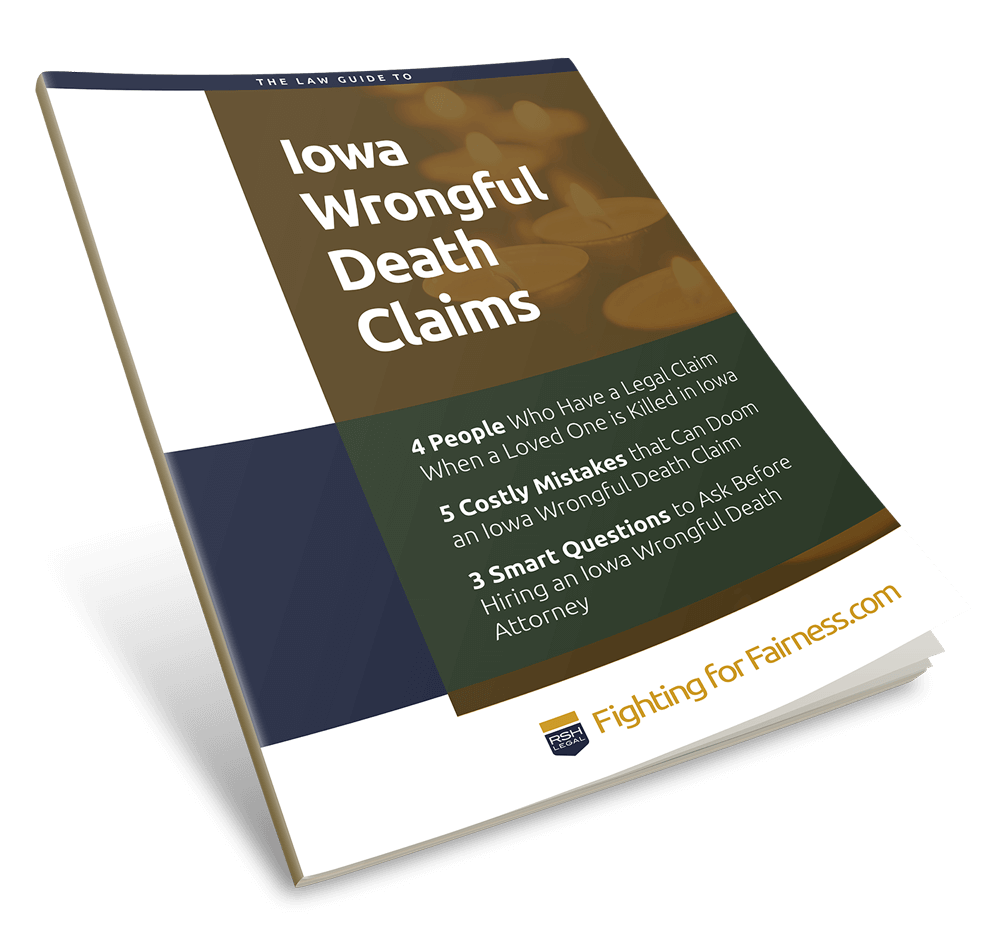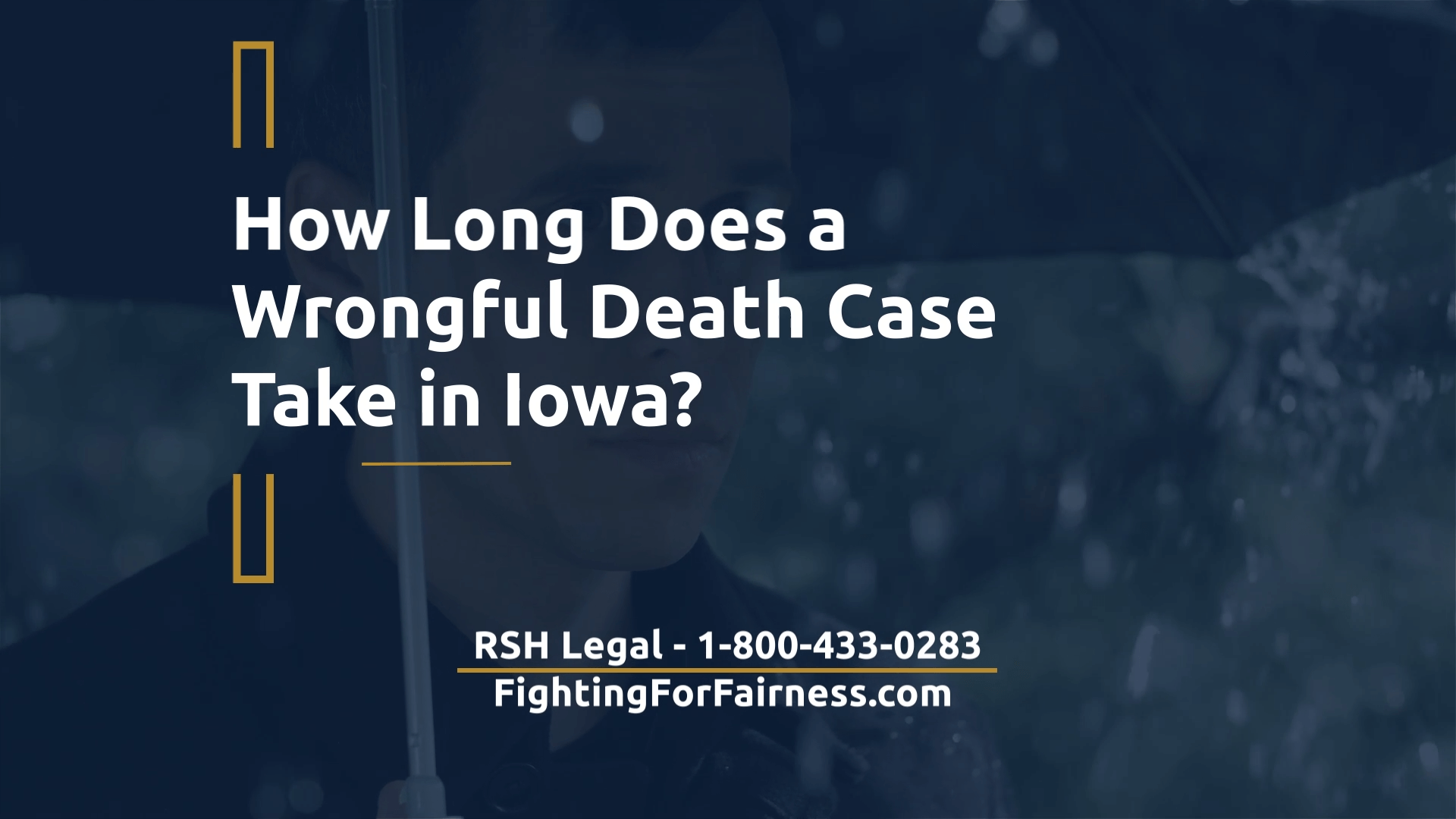If you are considering whether to file an Iowa wrongful death lawsuit after a loved one has died, it’s important to know why getting a fair settlement can be challenging. Regular personal injury claims and wrongful death claims are very different. Understanding how they’re different can help explain the difficulty in getting a fair settlement for a wrongful death claim in Iowa.
What Is an Iowa Wrongful Death Claim?
A wrongful death case describes any case where someone dies because of someone else’s fault. A death that occurs because of someone else’s fault can happen a variety of ways. Some examples include:
- A medical doctor delaying a diagnosis until it is too late to help the patient
- A nursing home fails to care for a resident’s bed sores properly, so the sores become infected and the resident dies
- A drunk driver doesn’t stop at a red light and crashes into a motorcycle, killing the rider
As you can see, there are many ways a wrongful death can happen. What is considered a “fair” settlement for a wrongful death claim will depend on many factors, including who is at fault for the death.
Differences Between Iowa Personal Injury and Wrongful Death Lawsuits
One difference between a personal injury claim and a wrongful death claim is the person who brings the lawsuit. For an Iowa personal injury lawsuit, the injured person seeks compensation. For a wrongful death lawsuit, the estate of the person killed asks for compensation.
Another key difference between personal injury and wrongful death claims in Iowa is the type of damages that can be sought. Personal injury damages are awarded to the injured person. A typical personal injury settlement can include compensation for:
- Medical bills
- Lost wages
- Loss of function of the body and/or mind
- Pain and suffering
In a wrongful death case, additional damages can be awarded to the deceased’s estate.
Economic Damages in a Wrongful Death Case
Economic damages are monetary losses that can be figured out from bills and other records. They can include:
- Medical bills, if there are injuries are treated before death
- Interest on premature funeral expenses
- Lost earnings
Non-Economic Damages in a Wrongful Death Case
Non-economic damages can also be part of a wrongful death claim. These damages can include:
- Pre-death loss of function of the body and/or mind
- Pre-death pain and suffering
- The family’s loss of household services performed by the deceased
- The family’s loss of comfort, guidance, and companionship provided by the deceased
In a wrongful death case, attorneys typically must hire economic experts to calculate how much these losses are worth.
As you can see, figuring out the fair value of an Iowa wrongful death case is a complicated analysis that requires a great deal of training and experience. Before discussing a settlement after the death of a loved one, find out your rights by calling RSH Legal today at 1-319-774-1542.




